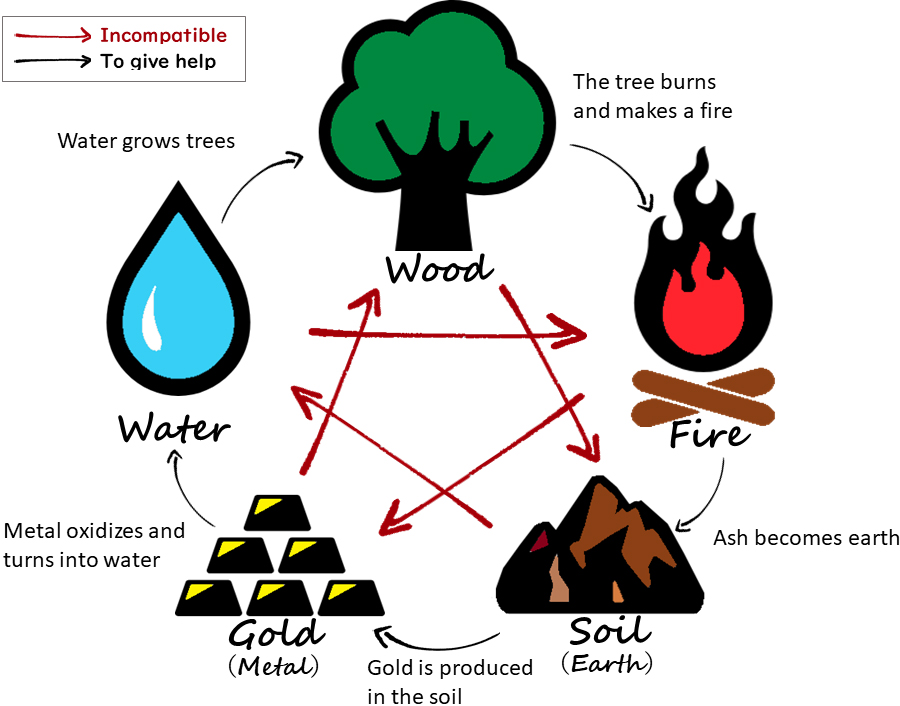The Essence of Wamoji
In Japan, a name is more than a label—it carries meaning, balance, and a sense of harmony.
While names in many cultures are chosen for their sound or family tradition, Japanese names are shaped by a practice that values both symbolism and balance. Each name is created using kanji characters, chosen not only for their meaning but also for how they sound and flow together.
In addition, the stroke count of each character and the relationship between numbers and sounds are often considered.
These ideas are connected to an old Japanese view of harmony in nature, where everything—like wood, fire, earth, metal, and water—exists in balance.
Finding this sense of balance in a name helps it “feel right” as a whole, both in sound and impression.
For example, the name Yōko (陽子) combines “陽” (sun, warmth) and “子” (child), expressing the wish for a bright and kind spirit, like sunlight. Beyond meaning, the flow of the sounds and the balance of strokes give the name a gentle, harmonious feeling.
This way of naming reflects a Japanese appreciation for harmony between language, people, and nature.
A name is not only what you are called—it is a thoughtful expression of identity and balance.
